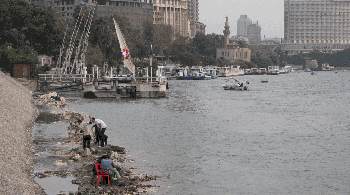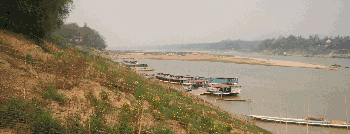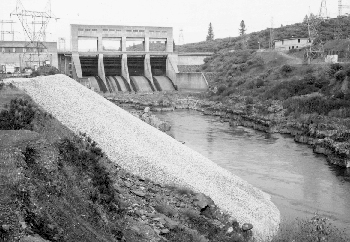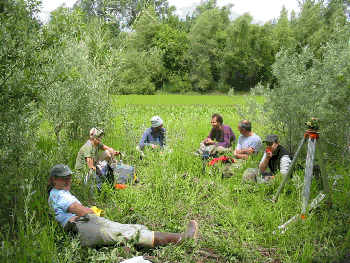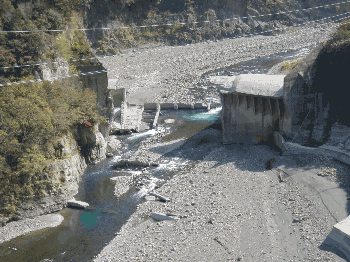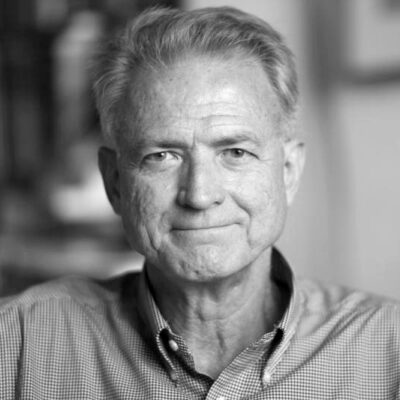
G. Matt Kondolf
https://acrobat.adobe.com/link/track?uri=urn:aaid:scds:US:563285cb-9035-3fb1-9c82-7fd46b162f24
SPECIALIZATIONS
Hydrology; environmental planning; river restoration; urban river management; river-basin scale sustainable sediment management; strategic planning for hydroelectric dams.
PHILOSOPHY STATEMENT
There is something vital about rivers, and irresistible. Whether seeking the flash of a salmon, or feeling your boat pulled into the next rapid, or falling asleep to the sound of water roaring down a steep mountain channel, moving water exerts strong magic on most of us, inspiring no shortage of analogies (life is a river, you cannot step in the same river twice). Within cities, rivers provide compelling opportunities for open space, ecological restoration, and community gathering – especially as former industrial waterfronts become accessible to human populations. In rural areas, we can step back from rivers to allow them room to erode, deposit, and thereby create their own complex channel forms and riparian forests – the ‘espace de liberté’ concept. In my classes, I emphasize understanding of physical and ecological process and river history as a basis for restoration strategy and management of riverine lands, the need to learn from management interventions, and the role of science in addressing land-use and resource management challenges. In the developed world, substantial investments in environmental controls and restoration have led to improvements in air and water quality, but in the Global South we see accelerated deterioration as rivers are increasing polluted by land-use impacts and urban effluents. A planned doubling of hydropower generation anticipated in the next two decades will lead to increased river disconnection by dams, cutting off vital sediment supplies to downstream reaches and deltas, unless we approach dam planning strategically, at the river basin scale, and consider alternative energy sources that are more sustainable than hydropower.
BIOGRAPHY
G. Mathias Kondolf is a fluvial geomorphologist, Professor of Environmental Planning, Co-Director of the Global Metropolitan Studies program at the University of California Berkeley (USA), fellow at the Collegium, Institute for Advanced Studies, University of Lyon (France), and a member of the International Scientific Board for the Ecole Universitaire de Recherche des Sciences de l'Eau et des Hydrosystèmes (H2O'Lyon). He teaches courses in hydrology, river restoration, environmental planning, and environmental science. Prof Kondolf researches human-river interactions, including managing flood-prone lands, urban rivers, sediment in rivers and reservoirs, and river restoration. He has recently developed new research areas on the social connectivity of urban rivers, analysing the city-river relationships over time and current urban river revitalization efforts; the social life of the sediment balance, examining river-basin impacts of dams on downstream rivers and deltas from both geomorphological and environmental history perspectives; and strategic dam planning for improved tradeoffs between hydropower generation and environment. Author of over 100 peer-reviewed papers and three books, his work has been published in leading journals, and he has advised governments and non-governmental organizations on sustainable management of rivers around the world, providing expert testimony before the US Congress, the California legislature, California Water Resources Control Board, the US Supreme Court, the International Court of Justice and the Permanent Court of Arbitration (the Hague), and in other fora.
COURSES TAUGHT
PROFESSIONAL SHORT COURSES
Geomorphic and ecological fundamentals for river and stream restoration. Week-long short course offered annually at Sagehen Creek Field Station, Truckee.
LD ARCH 12 Environmental Science for Sustainability
LD ARCH 205 Environmental Planning Studio
LD ARCH 222 Hydrology for Planners
LD ARCH 227 River and Stream Restoration
River restoration: Fluvial-geomorphic and ecological processes. Week-long short course offered at Beaumont du Ventoux and Lyon, southeastern France.
AWARDS & RECOGNITION
Clarke Scholar at the Institute for Water Resources of the US Army Corps of Engineers in Washington DC. 2011-2012. Council of Educators in Landscape Architecture. Award of Distinction, 2007. Fulbright Commission, senior scholar research award to conduct research on environmental river management in Portugal, University of Lisbon, Mar-May 2001. Fulbright Commission, senior scholar research award to conduct research on the Eygues River, France, 1997-1998. Fellow of the Landscape Architecture Foundation, 2013 EURIAS Fellowship Programme and the European Commission (Marie-Sklodowska-Curie Actions - COFUND Programme - FP7), senior fellow grant, 2017-2018
Publications
Schmitt, RJP, S Bizzi, A Castelletti, & GM Kondolf. 2018. Improved trade-offs of hydropower and sand connectivity by strategic dam planning in the Mekong. Nature Sustainability 1: 96–104 doi:10.1038/s41893-018-0022-3
Pinto, PJ, GM Kondolf, and PL Wong. 2018. Adapting to sea-level rise: emerging governance issues in the San Francisco Bay region. Environmental Science and Policy 90: 27-38. https://doi.org/10.1016/j.envsci.2018.09.015
Kondolf GM, and A Farahani. 2018. Sustainably managing reservoir storage: ancient roots of a modern challenge. Water 10(2), 117; doi: 10.3390/w10020117 online: http://www.mdpi.com/2073-4441/10/2/117
Kondolf, G.M., P. Pinto. 2017. The social connectivity of urban rivers. Geomorphology 277:182-196. https://doi.org/10.1016/j.geomorph.2016.09.028
Serra-Llobet A, Kondolf GM, Schaefer K, Nicholson S. (eds) 2018. Managing flood risk: innovative approaches from big floodplain rivers and urban streams. Palgrave Macmillan, London, 162 pp. https://www.palgrave.com/us/book/9783319716725
Kondolf, G.M., K. Podolak, and T.E. Grantham. 2013. Restoring Mediterranean-climate rivers. Hydrobiologia 719:527-545. DOI 10.1007/s10750-012-1363-y
Kondolf, G.M., Z.K. Rubin, J.T. Minear. 2014. Dams on the Mekong: Cumulative sediment starvation. Water Resources Research 50, doi:10.1002/2013WR014651.
Kondolf, G.M., Y. Gao, G.W. Annandale, G.L. Morris, E. Jiang, R. Hotchkiss, P. Carling, B. Wu, J. Zhang, C. Peteuil, H-W. Wang, C. Yongtao, K. Fu, Q. Guo, T. Sumi, Z. Wang, Z. Wei, C. Wu, C.T. Yang. 2014. Sustainable sediment management in reservoirs and regulated rivers: experiences from five continents. Earth’s Future doi: 10.1002/eft2 2013EF000184
Online at http://onlinelibrary.wiley.com/doi/10.1002/2013EF000184/pdf
Kondolf, G.M. River restoration and meanders. 2006. Ecology and Society.
[online] URL: http://www.ecologyandsociety.org/vol11/iss2/art42/
Kondolf, G.M., A. Boulton, S. O'Daniel, G. Poole, F. Rahel, E. Stanley, E. Wohl, A. Bang, J. Carlstrom, C. Cristoni, H. Huber, S. Koljonen, P. Louhi, and K. Nakamura. 2006. Process-based ecological river restoration: Visualising three-dimensional connectivity and dynamic vectors to recover lost linkages. Ecology and Society 11 (2): 5.
[online] URL: http://www.ecologyandsociety.org/vol11/iss2/art5/
Kondolf, GM, RJP Schmitt, P Carling, S Darby, M Arias, S Bizzi, A Castelletti, T Cochrane, S Gibson, M Kummu, C Oeurng, Z Rubin, and T Wild. 2018. Changing sediment budget of the Mekong: Cumulative threats and management strategies for a large river basin. Science of the Total Environment 625: 114-134. https://doi.org/10.1016/j.scitotenv.2017.11.361
Kondolf, G.M., and H. Piégay, eds. 2016. Tools in Fluvial Geomorphology, Second Edition. John Wiley & Sons, Chichester
Kondolf, G.M., and K. Podolak. 2013. Space and time scales in human-landscape systems. Environmental Management DOI 10.1007/s00267-013-0078-9
